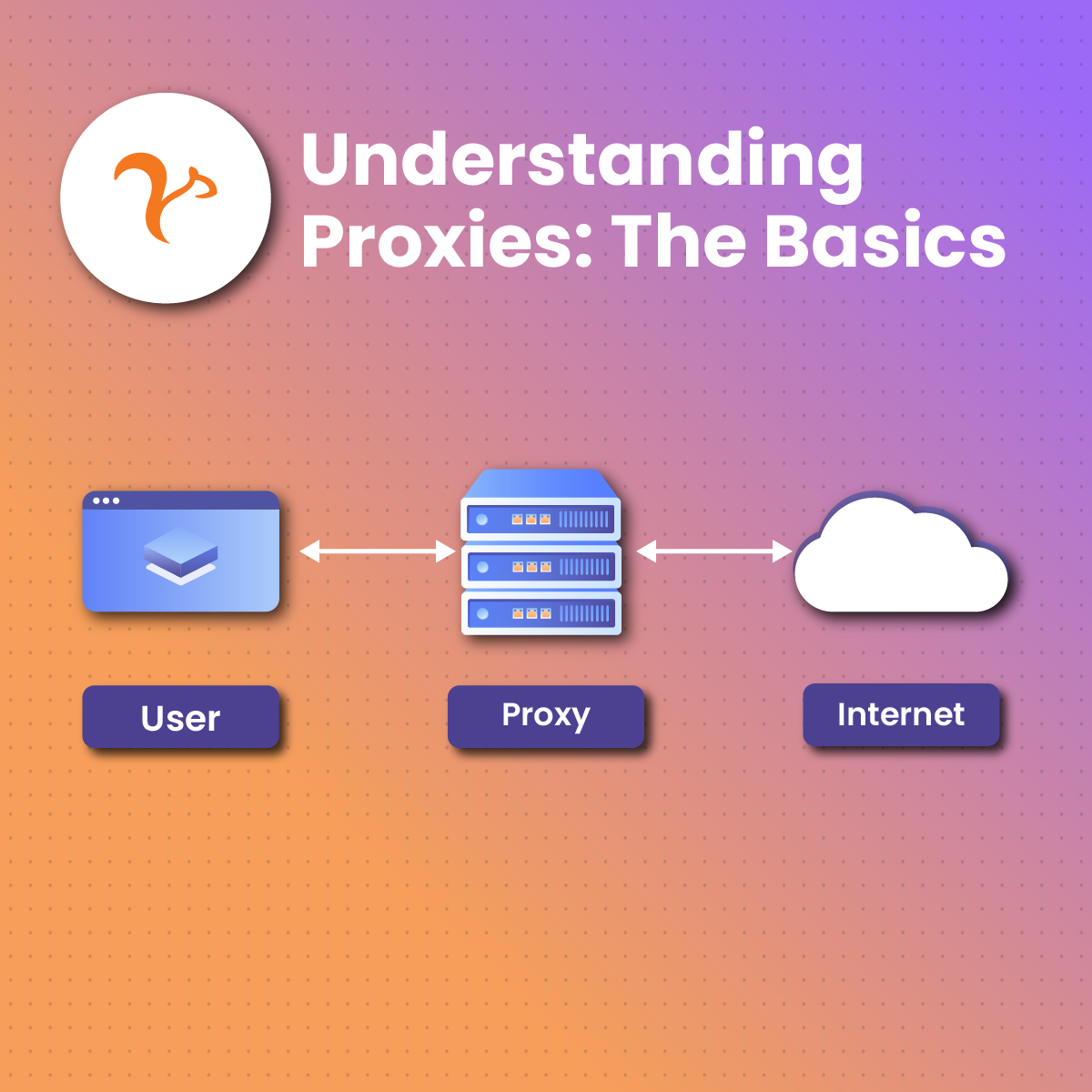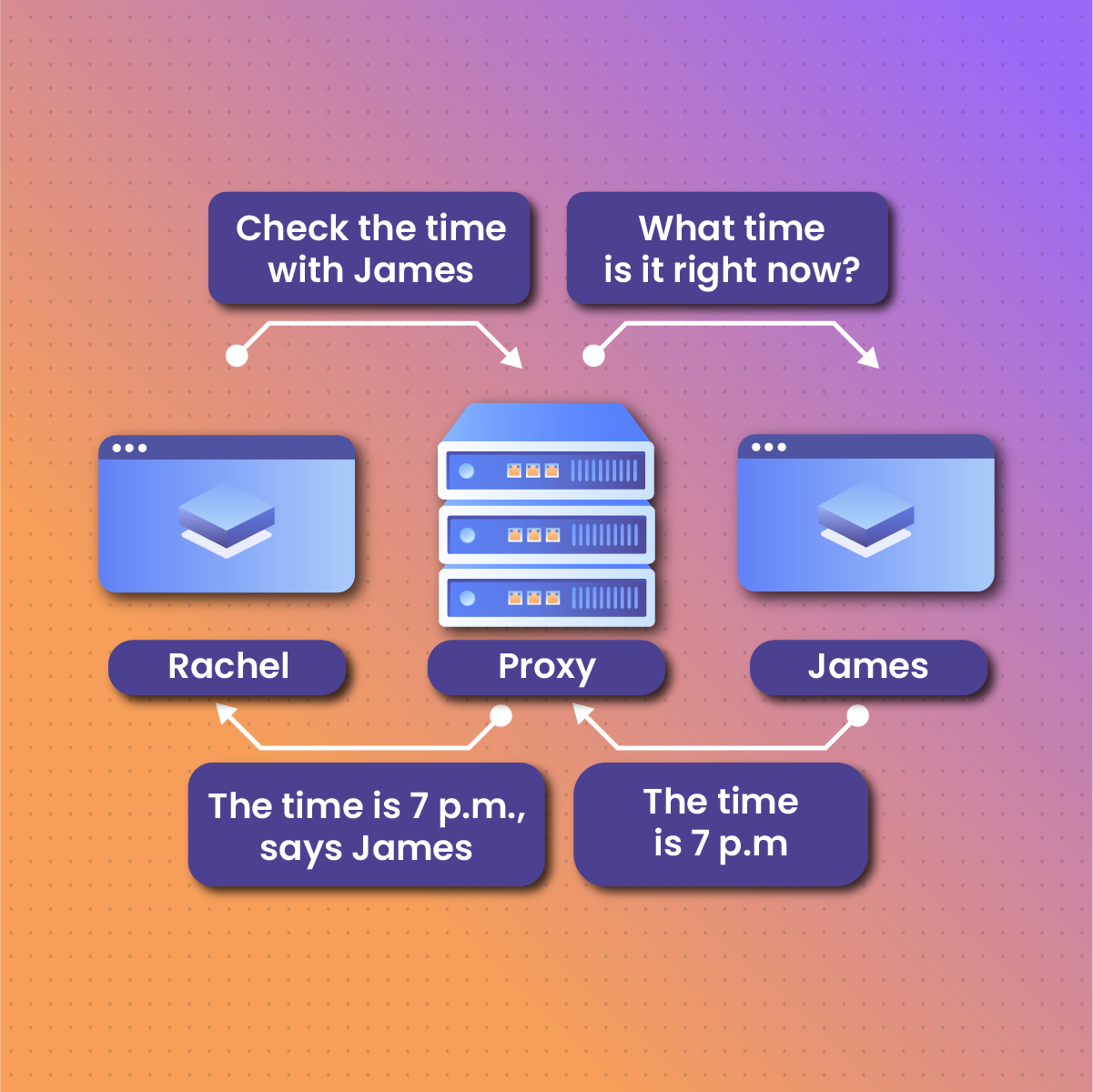5 Best Free Proxy Servers in the Market You Should Explore
In 2025, the demand for secure and private internet browsing continues to grow, making proxy servers an essential tool for many users. Free proxy servers provide an accessible way to enhance online privacy, bypass geo-restrictions, and improve security without incurring additional costs. This article explores the five best free proxy servers available in 2025, evaluating their features, reliability, and overall performance. Whether you need a proxy for anonymous browsing, accessing blocked content, or simply protecting your online activities, this guide will help you find the best free proxy server to meet your needs.

But how can users with a tight budget access proxies?
In this article, we’ll explore the concept of a proxy, how it works, and the top five free proxies in the market that anyone can use. Let’s begin!
5 Best Free Proxy Servers
Proxy servers are quite beneficial to businesses, individuals, and remote workers. Depending on the type and functionality, the prices of proxies vary. Some service providers offer free trials while others do not.
In this section, we’ll be looking at the top five proxy service providers in the market that offer free servers. Let’s begin.
1. NetNut Networks
NetNut Networks has an extensive IP pool and over 52 million residential proxies to help businesses and individuals access various applications and web pages around the world. Businesses find the proxies from this provider useful in privacy and security, SEO and SERP tracking, web scrapping, corporate data access, global product price tracking, and several others.
NetNut Networks is a top proxy service targeted by individuals and businesses of all sizes. Here are some features presented by NetNut Networks:
- Residential proxies linked to ISPs for optimal speed and connection.
- 24/7 live customer service to tend to users’ complaints.
- Over 52 million proxies from Data Centers, Residential, and ISPs.
- HTTP, HTTPS, SOCKS4, SOCKS5, mobile proxies, and IPv6 are all available.
- Worldwide availability, including U.S. and U.K.
- Static and rotation residential IPs exclusive to the US and U.K.
- Flexible pricing model
- Free trial available.
2. IP Royal
This service provider has a sourced pool of residential proxies. It presents a customizable dashboard despite being a free service.
Some of its features include:
- Automatic rotation of IP addresses
- Option to toggle and automatically replace IP addresses from the dashboard.
- Supports multiple locations
- Proxies can be used without contracts
- A free trial is available.
3. Proxy Scrape
Proxy Scrape is a popular brand that has been in the market and boasts between 2,000 to 3,000 free proxies. The platform has a high checking frequency and also offers paid services.
Here are some unique features of this proxy service provider:
- Routine server testing for optimal productivity.
- Free and paid service options.
- 24/7 customer support system to tend to users’ complaints
- HTTP, HTTPS, SOCKS4, and SOCKS5 are available in several countries.
4. Nimble
Nimble is an artificial intelligence–based proxy service that gives users unlimited access to websites and applications blocked due to location. It helps companies access numerous data types such as corporate data, SEO, pricing, and several others.
Some notable features of Nimble include:
- AI-powered interface
- 24/7 customer service to solve users’ issues.
- Geotargeting with high precision.
- HTTP, HTTPS, IPv6 available.
5. Smart Proxy
Smart Proxy is a notable proxy service provider that is known for its data extraction abilities. With flexible pricing and free trials, the company now caters to businesses of all sizes. Some features of Smart Proxy include:
- Over 40 million residential, data center, and ISP proxies.
- Proxies extend to over 195 locations
- Anonymity and security
- 24/7 customer support
- Free trials are available.
- HTTP, HTTPS, SOCKS5, and Mobile proxies are available.
What is a Proxy Server?
A proxy server is an application that exists between an end-user and the websites they visit. They can also be considered a gateway that relays data from a user to the internet and vice-versa while preventing direct interaction between both parties. The proxy server can pull this up by hiding the end-user’s internet protocol (IP) address.
Everyone who has access to the internet has an IP address that is tied to an internet service provider (ISP). During online activities, this IP address can be tracked, leading to possible data exposure. It can also be recognized by websites with restriction features and blocked off.
Generally, proxy servers have a vast array of functions. It could be based on needs (when you need them to access geo-restricted websites or applications), or privacy and security which depends on the use cases.
Keep reading to see how a proxy server works and the best free proxies in the market.
What Is A Free Proxy Server?
A free proxy server acts as an intermediary between your device and the internet, allowing you to access websites and online resources through a different IP address. When you use a proxy, your real IP address is hidden, which can help protect your privacy and enable access to geo-restricted content. Free proxy servers are typically available at no cost and are widely used by individuals seeking basic anonymity or to bypass certain website restrictions.
However, free proxy servers often come with limitations. These can include slower speeds, less reliable connections, and a lack of security features, as they may not encrypt your data. Moreover, free proxies are sometimes operated by third parties, raising concerns about data privacy and potential misuse. It’s essential to be cautious when using free proxy servers, as they might compromise your personal information.
Unlike paid proxies, which offer higher security, faster speeds, and dedicated support, free proxy servers are often a trade-off between cost and functionality. If you are looking for a more reliable, secure, and high-performance solution, NetNut’s proxy services provide an advanced alternative to traditional free proxies. Our network offers a premium proxy experience without the risks typically associated with free options, ensuring you get the best in privacy, speed, and security.
Why Should I Use A Free Proxy?
Using a free proxy offers several advantages, particularly for those seeking to enhance their online privacy and security without incurring additional costs. Free proxies allow you to mask your IP address, making it more difficult for websites and third parties to track your browsing activities.
They also enable you to bypass geo-restrictions, granting access to content that may be blocked or limited in your region. Additionally, free proxies can help manage network traffic and improve browsing performance by caching frequently accessed data. For users on a budget, free proxy servers provide a cost-effective solution to maintain anonymity and access the internet more freely.
What To Expect From Free Proxies
Free proxies can seem appealing at first glance due to their zero-cost nature, but they come with distinct trade-offs that users should carefully consider. While they provide basic proxy functionalities, their limitations often outweigh their advantages.
Benefits of Free Proxies:
- Cost-Free Access: The most obvious benefit is that free proxies require no payment, making them accessible to users on a tight budget.
- Basic Anonymity: Free proxies can hide your IP address, offering a minimal level of anonymity when browsing.
Drawbacks of Free Proxies:
- Security Risks: Free proxies may lack robust encryption, leaving your data vulnerable to interception. Some may even serve as traps for cybercriminals looking to exploit unsuspecting users.
- Inconsistent Performance: High traffic and limited resources on free proxy servers often result in slower connection speeds and frequent downtime.
- Data Logging Concerns: Many free proxies are notorious for logging user activity and selling this data to third parties, undermining your privacy.
- Limited Features: Features like IP rotation, high-speed servers, and geo-targeting are typically unavailable with free proxies, restricting their functionality for advanced tasks.
- Lack of Support: Free proxy providers rarely offer customer support, leaving you on your own to resolve any issues that arise.
How Does a Proxy Server Work?
To understand how proxies work, consider them as computer programs on the internet that have their own IP address. If you type a request on your browser. The message goes to the proxy which will then make mild changes to it and shield your IP address. Even though you get the expected response, your data is encrypted and your IP address and location will not be pin-pointed. You’ll be anonymous.
Other proxies such as a SOCKS work by masking your IP address to make your location unknown to bypass clusters that are hosted in the clouds behind a firewall. With these proxies, you can access any files on the internet without being restricted by location.
In addition to the enormous benefits being provided by proxies, accessing the internet becomes swift and businesses can use them to seamlessly track global product pricing and access relevant corporate data.
Free Proxies vs Paid Proxies
When comparing free proxies to paid proxies, several key differences emerge. Free proxies provide basic functionality at no cost, making them accessible for users who need occasional anonymity or to bypass geo-restrictions. However, they often come with limitations such as slower speeds, less reliability, and fewer security features. Paid proxies, on the other hand, offer enhanced performance, greater reliability, and robust security measures, including dedicated support and advanced encryption.
They also tend to provide higher bandwidth and faster connection speeds, making them suitable for more intensive tasks like streaming, gaming, and large-scale data scraping. While free proxies are ideal for casual use, paid proxies deliver a more comprehensive and dependable solution for those who require consistent and high-quality service.
Free proxy servers often lack robust security features, making them more susceptible to cyberattacks or data leaks. They typically offer limited bandwidth, slower speeds, and can result in unreliable connections—especially during peak usage times when many users are sharing the same server. In addition, free proxies may not provide customer support, leaving you with little recourse if issues arise. The anonymity provided by free proxies is often superficial, and some free proxy operators might track or sell your browsing data to third parties.
On the other hand, paid proxy servers offer substantial advantages in terms of security, speed, and overall performance. With a paid proxy service, you get access to dedicated servers that ensure faster connections, more reliable uptime, and greater control over your browsing privacy. Paid proxies often include encryption, protecting your data from potential threats, and offering more flexibility with customizable options tailored to your specific use case.
If you’re serious about privacy, security, and performance, a paid proxy server like NetNut’s can deliver an unmatched experience. Our proxy solutions offer high-speed, secure connections through a vast network of residential and data center proxies, ensuring that your data is safe and your browsing is seamless. Whether you need proxies for business or personal use, opting for a premium service like NetNut guarantees you peace of mind without compromising on speed or reliability.
Final Thoughts on Free Proxies
By shielding the IP address of end-users, proxies act to route data traffic during internet surfing. This helps to create a secure and anonymous browsing experience for the user. In this simple but comprehensive article, we explored the concept of proxies and how they work.
We concluded by looking at the top five free proxy servers in the market and the features of these providers.
Frequently Asked Questions (FAQs)
What is a residential proxy?
A residential proxy is a pool of inter-woven and real IP addresses that can be used to access websites or applications blocked due to location. These IP addresses are linked to ISPs and are useful in online activities such as torrenting, video games, web scraping, and corporate data extraction.
What are the two major types of residential proxies?
Residential proxies are of two types – static or rotation. With static proxies, the end-user is assigned just one IP address for use during online activities. In the case of rotation proxies, the user’s IP address is periodically changed during online activities, making it difficult to link an IP address to a particular user.
What is a SOCKS5 Proxy?
The SOCKS5 proxy is the latest version of the socket secure protocol that relays communication between a user and the internet where a firewall exists. The main function of this protocol is to mask a user’s IP address to bypass security or location blockers on a web page or application.








